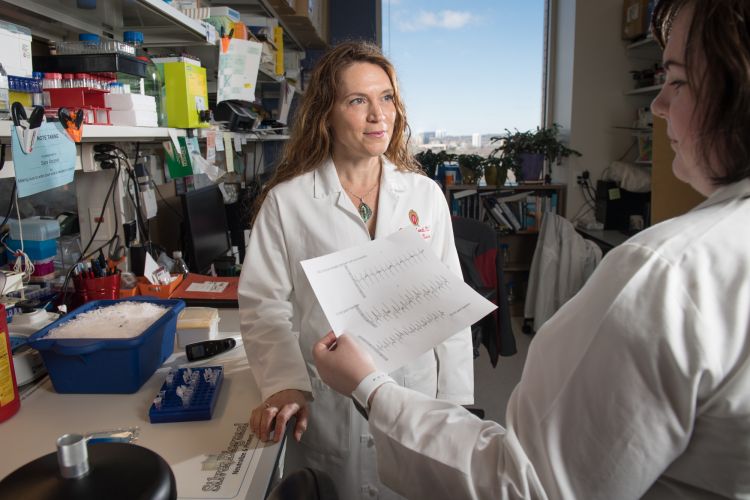Dr. Lee Eckhardt awarded funding for heart arrhythmia research

Lee Eckhardt, MD, MS, associate professor, Cardiovascular Medicine, has been awarded $1.5M over 4 years (R01) from the National Institutes of Health - National Heart, Lung, and Blood Institute (NIH-NHLBI) for a proposal entitled, "KCNJ2-Induced Arrhythmia Mechanisms in CPVT and Heart Failure."
The research will focus on the role of ion channel protein called Kir2.1 encoded by the gene KCNJ2 in arrhythmic sudden cardiac death (SCD), which is a leading cause of death in the United States.
SCD can be caused by ionic current abnormalities occurring in genetic arrhythmia syndromes, or acquired heart disease such as heart failure.
The research study will investigate how some inherited mutations the KCNJ2 result in a condition called Catecholaminergic Polymorphic Ventricular Tachycardia (CPVT). This condition involves abnormal handling of calcium ion levels in heart tissue, even though Kir2.1 does not directly participate in maintaining balance of calcium.
Using cellular and transgenic mouse models, Dr. Echkardt's team will test hypotheses about how arrhythmia mechanisms of mutations in KCNJ2 are related to calcium ion homeostasis in comparison to a model of heart failure.
"Elucidating the nuances of dysfunction in this ion channel and Ca2+ handling under beta-adrenergic-dependent stress conditions will lead to more evidence-based treatment approaches and prevention of sudden cardiac death," wrote Dr. Eckhardt.
Resources:
Photo (top): Dr. Lee Eckhardt converses with research associate Louise Reilly, PhD, in her laboratory during this 2016 file photo. Photo credit: Clint Thayer/Department of Medicine